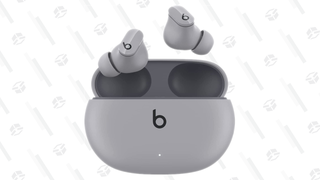
Apple is avoiding any deep stake in the consumer VR pricing rat race, reportedly, with a very expensive and very low-key first release. As first noted by MacRumors, consistent Apple analyst Ming-Chi Kuo wrote Sunday that the tech giant will only be releasing less than 1.5 million units of its first gen AR/VR headset next year, which is when he expects it to finally be out the door.
According to Kuo, the new headset could make an appearance as early as January 2023 and cost $2,000, making it one of the most costly headsets on the market. This would make this device only really useful for enthusiasts with deep pockets or industry professionals.
Still, it’s less than some past reports that claimed the final price of Apple’s headset would cost closer to $3,000. The product has been long in the pipe, with reported delays and Apple’s refusal to even mention the device or it anticipated AR software, realityOS, further adding to speculation.
Past reports have speculated Apple’s mixed reality headset will have specs equivalent to an M1 MacBook Pro and be pretty light overall despite having 8K displays alongside a dozen or so cameras for hand tracking. Kuo speculated that Apple is focusing on limited, expensive headsets to see where the market demand is for these high-end VR devices, and pricing could be dropped as time goes on. The Apple analyst added presentations on how this first run of headsets sells could calm investors’ anxiety over market demand.
Though the question remains what kind of market there is for such high-end headsets when the space is currently dominated by lower priced VR devices like the (now $100 more expensive) Meta Quest 2. Such a high price point on Apple’s leading VR offering would be way out of range of even pricey headsets like the Valve Index or Vive Pro 2. The only hope for a reasonably priced headset would be if other rumors of an “affordable” option come true, though there’s still no word about specs or price for any such model.
G/O Media may get a commission
Of course, Meta’s low, low pricing of its most popular wireless headset has greatly expanded the market for virtual reality. Analysts have estimated the Quest 2 has sold nearly 15 million units in the two years since its launch. The $1,000 full kit Valve Index remains a high seller on Steam, even two years later.
Although, this recent news is in line with earlier reports out of Apple that claim the company’s AR offerings are meant for shorter sessions, rather than the hour-upon-hour timeframes people championing “the metaverse” seem to imply. Instead of forcing people to exist in a virtual environment (where they can easily display ads for digital products), Apple is much bigger on alternate reality tech such as recently revealed iPhone tools that allow for virtual redecorating (which we can only assume will one day be used to display more virtual advertising. There’s really no escaping it).





